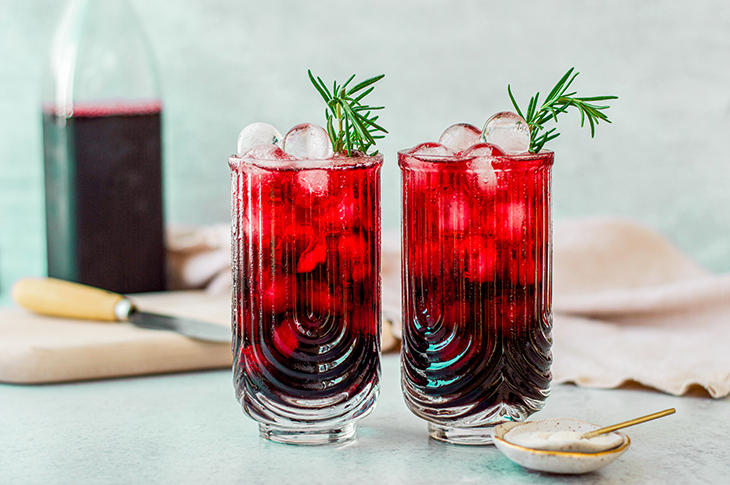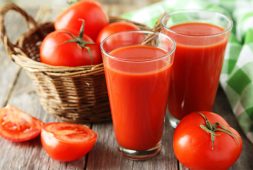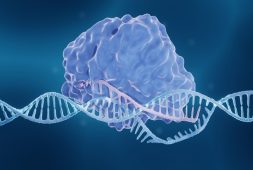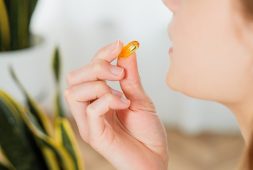
Tart cherry juice boasts a natural source of melatonin, a hormone pivotal in regulating sleep patterns, which the body typically secretes in reaction to darkness. Despite the fervent endorsements flooding social media platforms, experts remain skeptical about its efficacy. The popular concoction, dubbed the “sleepy girl mocktail” on TikTok, consists of seltzer, tart cherry juice, and magnesium powder, purportedly offering a simple remedy for achieving restful sleep.
“This is the little mocktail I make when I want to have the best sleep of my life,” one TikToker said in a video that garnered 4.3 million views.
Jose Ordovas, PhD, a senior scientist and professor at the USDA Human Nutrition Research Center on Aging at Tufts University, suggests that although influencers may assert that the ingredients in this mocktail aid sleep, there isn’t conclusive scientific evidence supporting its ability to solve sleep issues.
“It’s not strictly junk science,” Dr. Ordovas says. “There is some weak scientific basis for the ingredients individually potentially aiding sleep, but there is no direct scientific evidence to support the combined effects of these ingredients as presented in the sleepy girl mocktail.”
Is it Really a Recipe for Sleep?
Magnesium is pivotal in various bodily functions associated with sleep, such as the regulation of neurotransmitters, which act as messengers in the brain, orchestrating the body’s circadian rhythms. Dr. Ordovas underscores that magnesium deficiency correlates with sleep disturbances and insomnia. Introducing magnesium supplements can sometimes ameliorate these conditions by addressing the deficiency.
Tart cherry juice emerges as a natural source of melatonin, a hormone synthesized by the brain in response to darkness, facilitating sleep. Additionally, cherries boast anthocyanins and tryptophan, compounds that further support melatonin production, thereby enhancing sleep quality.
Although seltzer lacks specific sleep-inducing components, Dr. Ordovas highlights the critical role hydration plays in sleep regulation. Dehydration can impede melatonin production and disrupt the body’s internal clock, underscoring the importance of staying adequately hydrated for optimal sleep hygiene.
Is This Better Than Cocktails?
Marie-Pierre St-Onge, PhD, an associate professor of nutritional medicine and the director of the Center of Excellence for Sleep and Circadian Research at Columbia University Irving Medical Center in New York City, highlighted that while the ingredients in the sleepy girl mocktail do possess associations with sleep, the quantities of water, magnesium, and cherry juice contained within a single serving might not be substantial enough to yield a noticeable effect.
“But if the mocktail replaces a cocktail, that could contribute to better sleep,” Dr. St-Onge said.
Incorporating a mocktail sans alcohol or caffeine into your nightly bedtime routine could yield benefits. According to Ordovas, the ritual of enjoying a bedtime beverage might contribute to improved sleep. This mocktail could contribute to good sleep hygiene, fostering habits conducive to falling and remaining asleep.
“The ritual signals to the body that it’s time to wind down, which can help ease the transition into sleep,” Ordovas said. “This psychological aspect, sometimes referred to as the placebo effect, where the belief that a certain routine will aid in sleep can make it more likely to do so, plays a significant role in sleep hygiene.”
Foods and Drinks That Promote Sleep
Here are some bedtime snacks and beverages recommended by Ordovas for enhancing your sleep:
- Warm milk: This classic remedy may have a comforting effect, possibly due to its association with childhood warmth and security.
- Herbal teas: Non-caffeinated herbal teas such as chamomile, valerian root, or lavender are known for their calming and sleep-inducing properties.
- Almonds and walnuts: These nuts are rich in magnesium and melatonin, both of which are associated with better sleep patterns.
- Bananas: High in potassium and magnesium, bananas can help relax muscles and nerves, promoting better sleep.
- Kiwi: Consuming kiwi before bed may improve sleep onset, duration, and quality due to its antioxidant properties and serotonin content.
- Fatty fish: Fish like salmon and mackerel are excellent sources of omega-3 fatty acids and vitamin D, which have been linked to improved sleep quality.
Foods and Drinks That Could Hinder Sleep
In addition to incorporating certain foods into your diet to enhance sleep quality, it’s important to be mindful of what you consume, especially before bedtime, to minimize sleep disturbances. Ordovas suggests avoiding the following:
- Caffeine: Found in coffee, tea, chocolate, and some soft drinks, it’s best to steer clear of caffeine for four to six hours before bedtime as it can hinder your ability to fall asleep.
- Alcohol: While it might initially aid in falling asleep, alcohol typically diminishes sleep quality and can prompt wakefulness later in the night.
- Heavy meals: Consuming large or rich meals late in the evening may lead to discomfort and indigestion, which can disrupt sleep.
- Spicy foods: These can cause heartburn and indigestion, both of which can interfere with restful sleep.
- Sugary foods and simple carbohydrates: These may cause a surge in blood sugar levels, potentially leading to wakefulness during the night.
Proper Sleep Hygiene
Focusing on your dietary habits and beverages is just one aspect of fostering good sleep hygiene, according to Ordovas. Establishing a routine is crucial, whether or not it involves indulging in a sleepy girl mocktail. Ordovas suggests several strategies:
- Maintain a regular sleep schedule: Consistency in bedtime and wake-up times assists in regulating your body’s internal clock, aiding in falling asleep and staying asleep throughout the night.
- Optimize your sleep environment: Creating a quiet, dark, and cool space encourages restful sleep. Consider utilizing earplugs, a fan, or a white noise machine to minimize disruptive noises.
- Limit screen exposure: Reduce exposure to blue light emitted by electronic devices such as phones, tablets, and computers, as it can disrupt melatonin production. Aim to decrease screen time at least an hour before bedtime.
- Incorporate physical activity: Regular exercise promotes quicker sleep onset and deeper sleep, though it’s advisable to avoid vigorous activity too close to bedtime.
- Manage stress: Stress commonly contributes to sleep disturbances. Practices like meditation, deep breathing, and progressive muscle relaxation can alleviate stress and facilitate better sleep.
- Avoid daytime naps: If you struggle to fall asleep at night, refrain from napping, particularly in the afternoon.
- Establish a pre-sleep routine: Engage in consistent pre-bedtime rituals to signal to your body that it’s time to unwind and prepare for sleep.
The Bottom Line
St-Onge emphasizes the importance of maintaining good sleep hygiene, regardless of whether you indulge in a sleepy girl mocktail nightly. She underscores that considering sleep as one of the three fundamental pillars of good health, alongside nutritious eating and regular exercise, is crucial. Thus, prioritizing quality sleep contributes significantly to overall well-being, promoting a holistic approach to health management.
“All three reinforce one another,” St-Onge said. “What you eat during the day impacts your sleep, which influences your ability to choose a healthful diet and perform physical activity; and whether you exercise during the day influences your ability to fall asleep and get restful sleep, which impacts your food choices and activity the next day.”



